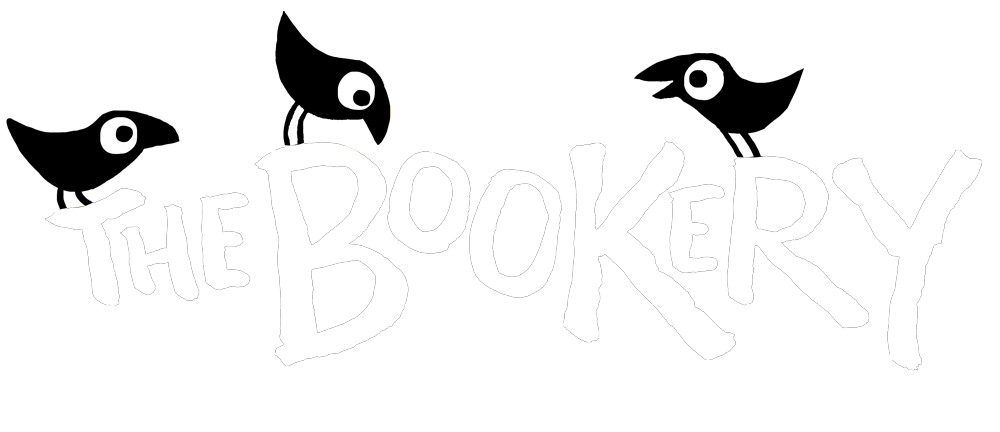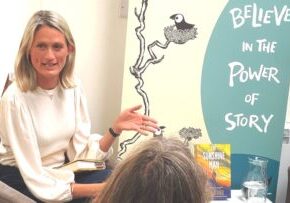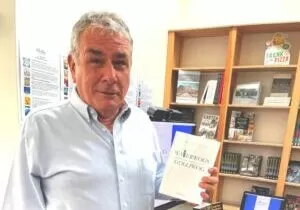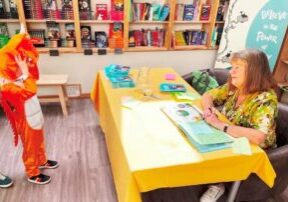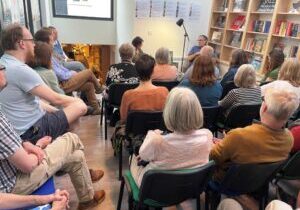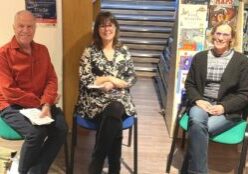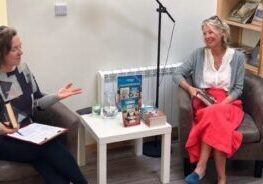FEATURES
Kev’s Shelf Obsession: Iain Banks
August 28, 2022 | Blog > Features > Kev’s Shelf Obsession: Iain Banks

 Kev McCready is a writer, born in Liverpool but now living in Devon. Always with his nose in a book and a cuppa brewing. A fanatical reader since the age of five, Kev has a collection of bookmarks as esoteric as his bookshelves…
Kev McCready is a writer, born in Liverpool but now living in Devon. Always with his nose in a book and a cuppa brewing. A fanatical reader since the age of five, Kev has a collection of bookmarks as esoteric as his bookshelves…
Iain Banks occupies a peculiar place in literature. His contemporary novels have a dark, oxymoronic moral coating of sex, violence and morality. There is a very manichiestic sense of what is what is right and wrong; but also, the sense that love and justice can (possibly) make the universe slightly more bearable.
His books have a cult following – enough to inspire a joke in Hot Fuzz, but also revered enough to make it onto the Scottish Highers (A Level) syllabus. His characters are largely morally complex individuals; railing against an unjust, amoral universe.
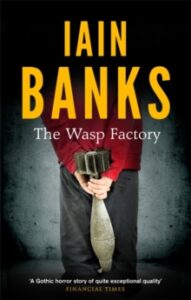 The Wasp Factory (1984) is his first novel and I read it as an act of teenage rebellion. It’s still certainly a controversial read, but it may well have matured with time and could now be seen as an essay on gender politics. Frank Cauldhame is a solipsistic teenager who has committed three murders, but now considers it to be “a stage as I was going through.” Things are brought to a head by the escape of Frank’s brother Eric from a mental hospital. A thin, nasty and jaw dropping debut.
The Wasp Factory (1984) is his first novel and I read it as an act of teenage rebellion. It’s still certainly a controversial read, but it may well have matured with time and could now be seen as an essay on gender politics. Frank Cauldhame is a solipsistic teenager who has committed three murders, but now considers it to be “a stage as I was going through.” Things are brought to a head by the escape of Frank’s brother Eric from a mental hospital. A thin, nasty and jaw dropping debut.
The Crow Road (1992) is, by a long chalk his best novel. “You don’t like that do you? My Catherine Cookson book?” he told me at a signing in Liverpool. I think that sells it slightly short of what it is. A family saga, yes, but asking big questions about faith and love. Prentice McHoan is a much a rootless young man as Frank Cauldhame, but with more sympathy. In love with someone who doesn’t notice him and distanced from his author Father; after an argument on the existence of god. The title is a Scottish euphemism for death and it hooks you from the opening line: “It was the day my grandmother exploded”.
Bank’s repeats the homecoming device in one of his later novels The Steep Approach To Garbadale (2007). Alban McGill is another of Bank’s lost souls, distant heir to a family fortune from a popular boardgame. He returns to the family estate to vote in the AGM on selling the rights of Empire! to a computer games company. It’s similar to The Crow Road in many aspects – not quite as slick or satisfying; but with the same emphasis on the existential sadness of life and the moral vacuum of what was bad then/even worse now modern politics.
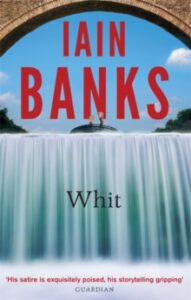 In Whit (1995), Isis Whit is a teenaged member of The Luskentyrians; a religious cult that is a mix of Scottish/South Asian culture. She’s sent into our world (“The Unsaved”) to bring her apostate cousin home for The Festival of Love, an orgy which takes place on leap year day. It’s a dark parody of the concept of faith, and the concept that anyone can make their own god/rules is rightly derided.
In Whit (1995), Isis Whit is a teenaged member of The Luskentyrians; a religious cult that is a mix of Scottish/South Asian culture. She’s sent into our world (“The Unsaved”) to bring her apostate cousin home for The Festival of Love, an orgy which takes place on leap year day. It’s a dark parody of the concept of faith, and the concept that anyone can make their own god/rules is rightly derided.
Finally, Complicity (1993). Journalist Cameron Colley becomes prime suspect in a series of grisly murders of the great and the good inspired by one of his columns. Banks freely admitted the plot “pays homage” to the old Hammer film Theatre of Blood. But there’s skill in depicting the murders in the second person – see also the moral discussion of what murder is against the slaughter of the first Gulf War.
August 28, 2022
Blog > Features > Kev’s Shelf Obsession: Iain Banks
